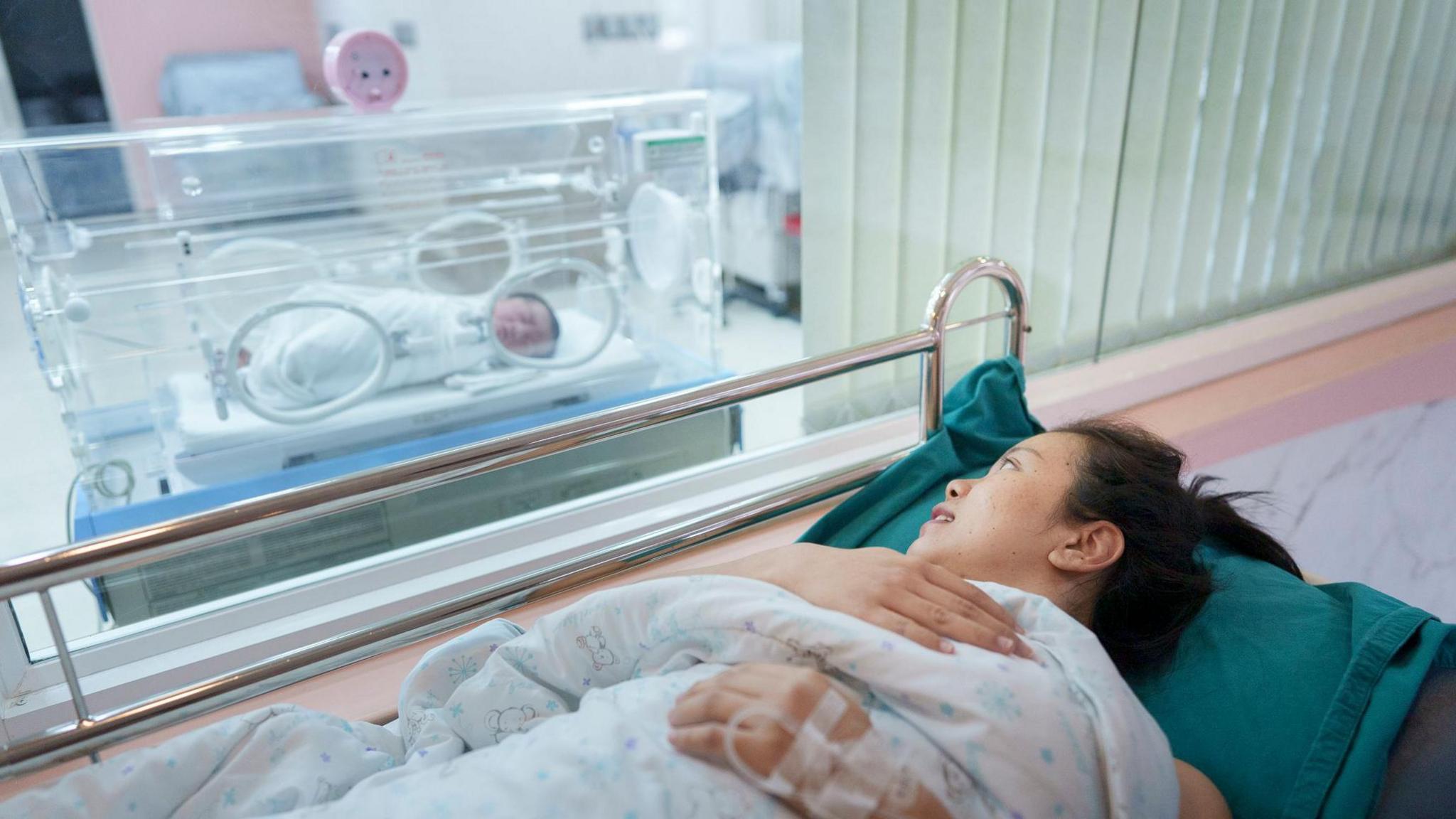How Paddington bear has been helping young babies to learn language

- Published
Do you enjoy having stories read to you, maybe at school or before bed?
Well it's something that's not only good for children but also for very young babies.
As part of a study some mums were asked to record themselves reading Paddington Bear to their premature babies, who were born at least three weeks early.
The research showed that the sound of their mothers reading to them helped the babies' brains to mature and stimulated areas connected to language.
Paddington Bear statues appear across UK and Ireland
- Published11 October 2024
Know your books? Try our epic reading quiz
- Published5 August
Premature babies are those who are born earlier than expected, so their bodies haven't had as much time to develop in the womb as those born on, or after, their due date.
This means they often spend weeks, or months, in the hospital to make sure they are strong enough to go home.
But as their parents might not be able to stay with them all the time, this means they would be less used to hearing their mother's voice than babies who would still have been growing in her belly.
When children born prematurely get older they often start speaking later than other children, and scientists had suspected that less exposure to the sounds of speech might have been part the problem.

Premature babies often stay in an incubator like this to help them grow safely, but often parents can't stay at the hospital around the clock as they may have older children to care for or jobs they must return to
The study led by Stanford Medicine study looked at MRI brain scans of premature babies, and found that a key language pathway was more developed for the babies who heard the recordings than those that didn't.
Why was Paddington Bear the book mother's were asked to read? Researchers chose this book because it has been translated into lots of different languages.
"This is the first causal evidence that a speech experience is contributing to brain development at this very young age," said the lead author, Katherine Travis.
She added that this discovery could be a "transformative way of thinking" when it comes to helping care for children born prematurely.
The study has been published in the journal Frontiers in Human Neuroscience.
